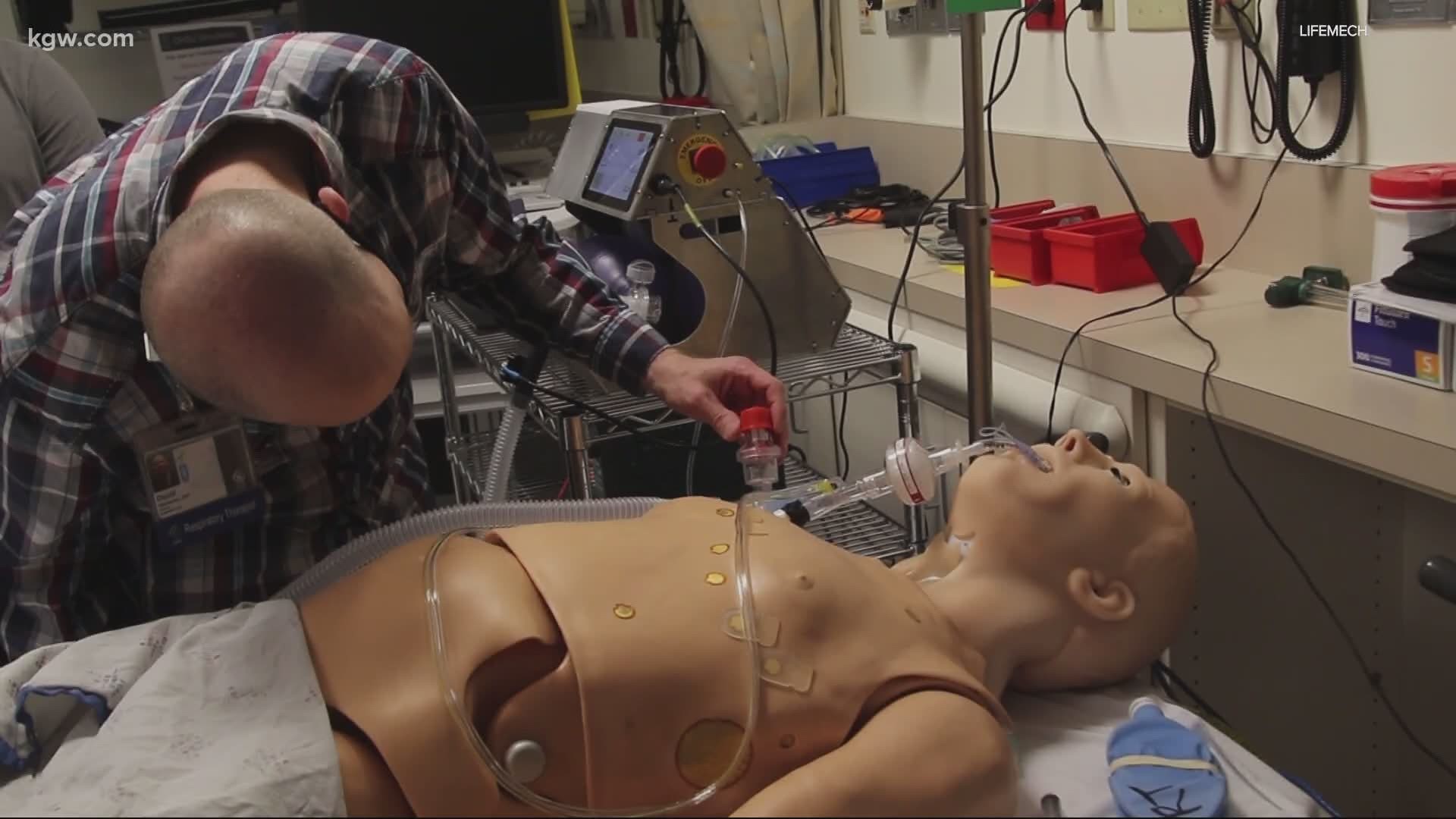PORTLAND, Oregon — Time and again, ventilators have helped save lives during the COVID-19 crisis, but they're expensive and in high demand. Now a team of doctors and engineers—including several from Oregon—is designing a new, affordable ventilator that can be used around the world.
“We're calling the device the Adapted Ventilator System, or AVS for short," said Saurabh Gupta, a local cardiologist and executive director of LifeMech. The non-profit is made up of more than 180 volunteer engineers, doctors and innovators who have been designing the AVS remotely, since March.
“We felt that doing nothing was not an option,” said Gupta.
The team’s goal was to design a low-cost medical-grade ventilator that could be used when commercial-grade machines were unavailable.
“I wanted something that I would feel comfortable putting in a patient in an emergency,” said Gupta.
Commercial-grade ventilators can cost tens of thousands of dollars to manufacture. LifeMech aims to keep manufacturing costs of its AVS to around $400. They’ve set up a GoFundMe account to helping offset some of those costs.
“None of us actually gets paid to do this,” said Gupta. “This is all purely voluntary, purely pro bono for a really good cause.”
Last weekend, part of the LifeMech team tested the ventilator in a simulation at OHSU. They just filed for emergency use authorization from the Food and Drug Administration.
“I think it outperformed all our expectations,” said Avi Gupta, an 18-year-old student engineer and Dr. Gupta’s son. He’s also the youngest member of the LifeMech team. Avi helped design the ventilator's user interface, the part of the ventilator where clinicians monitor patients and control how they’re being ventilated.
“That's been a super rewarding experience both from a technical development perspective but also thinking of questions of usability and how an overwhelmed doctor with a lot of patients can most easily and most accessibly use the system."
If Avi’s name sounds familiar, you might be a Jeopardy fan. The Catlin Gable graduate is the reigning Jeopardy Teen Tournament champion. He's wrapping up his freshman year at Columbia University remotely, while working on the ventilator project.
“I'm impressed with his work ethic,” said Dr. Gupta. “A lot of hours he’s put in.”
“It's been a nice sort of father-son bonding experience to design a ventilator,” said Avi. “Not a typical experience, but a fun one none the less.”
As the LifeMech team designs and builds the ventilators, they're publishing plans and software code online. Their hope is that others around the world could then use them to manufacture their own low-cost ventilators.
“Even if the need around our community is not immediate, there definitely is a need around the world,” said Dr. Gupta.

